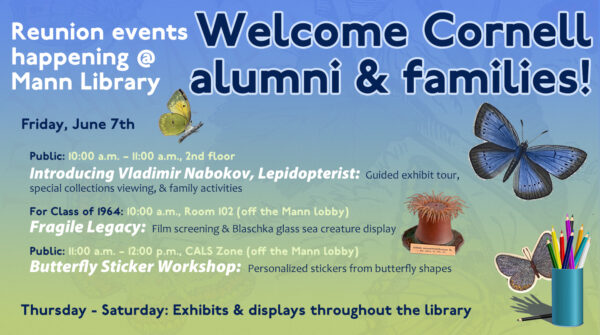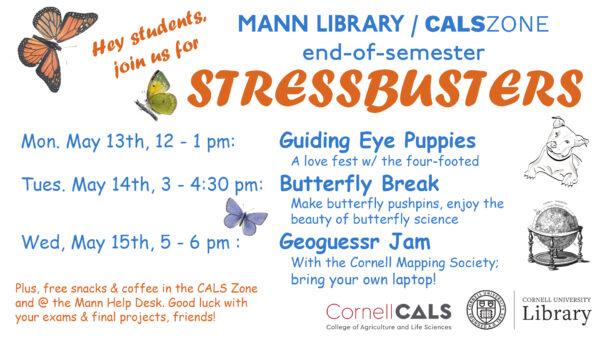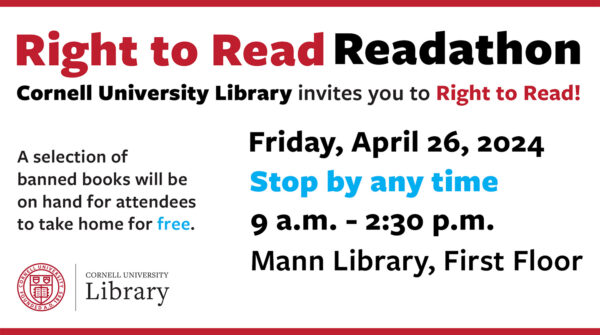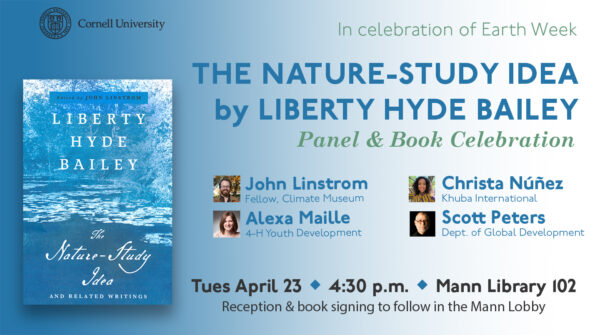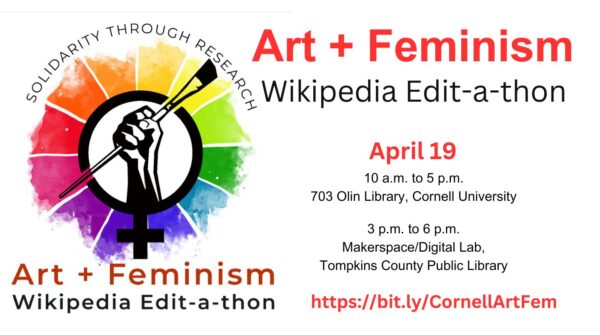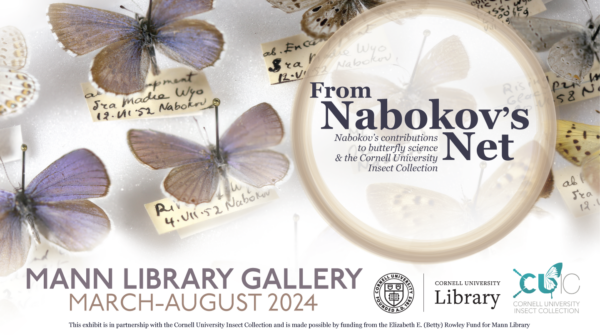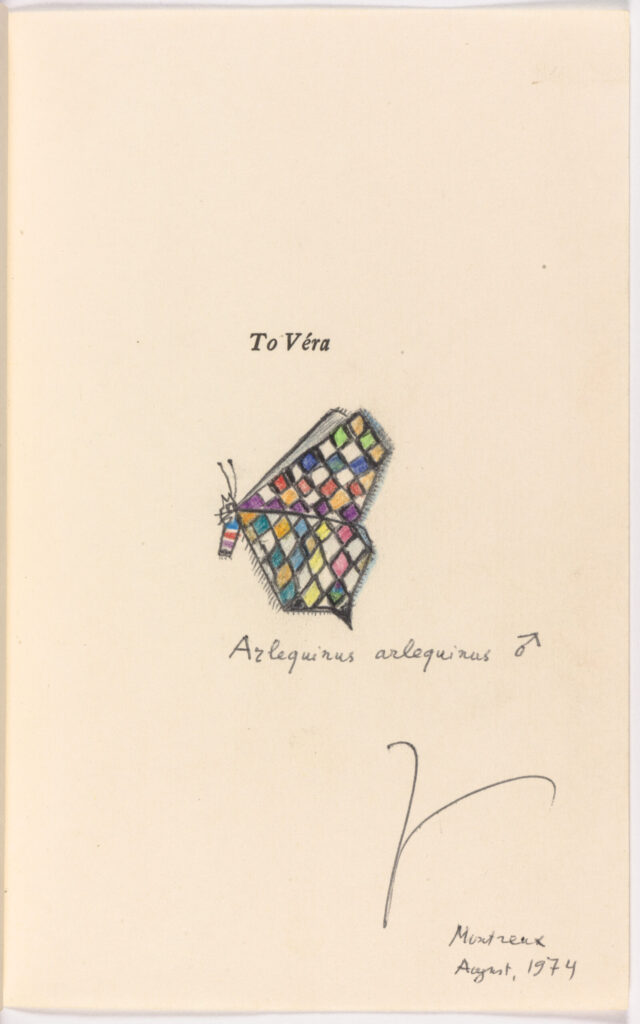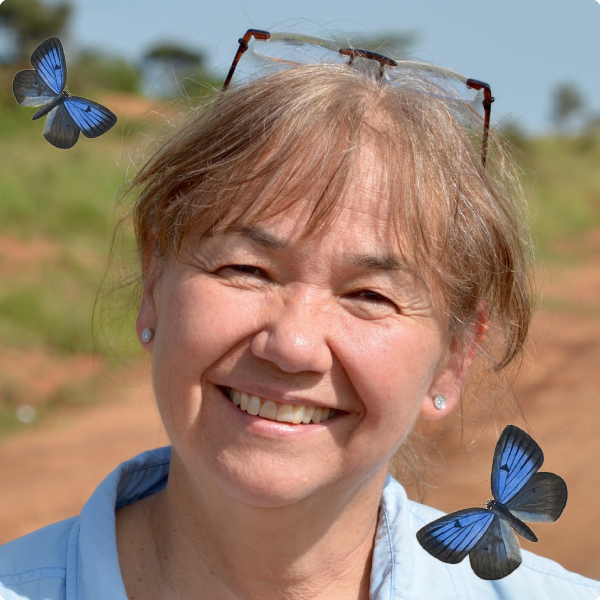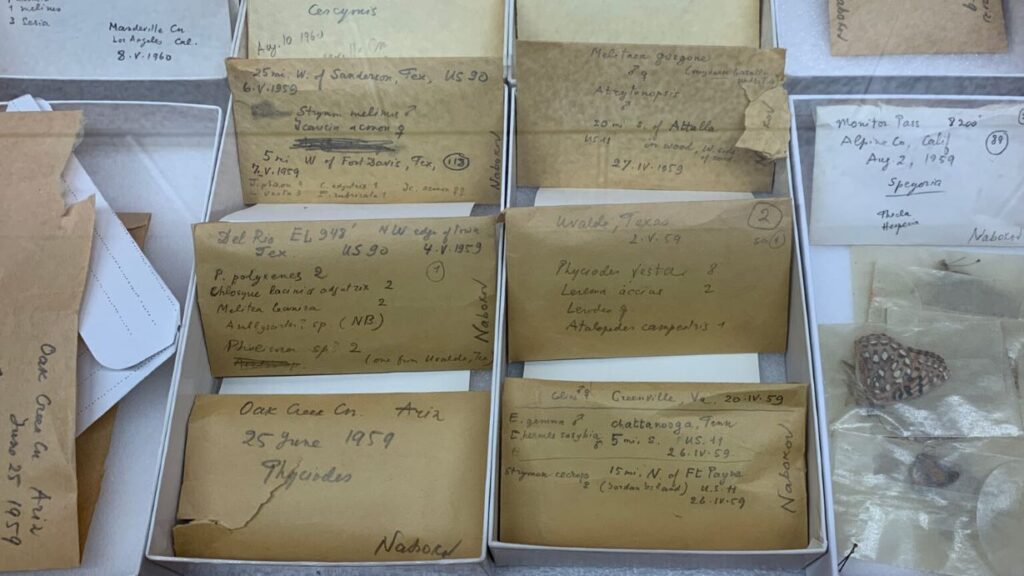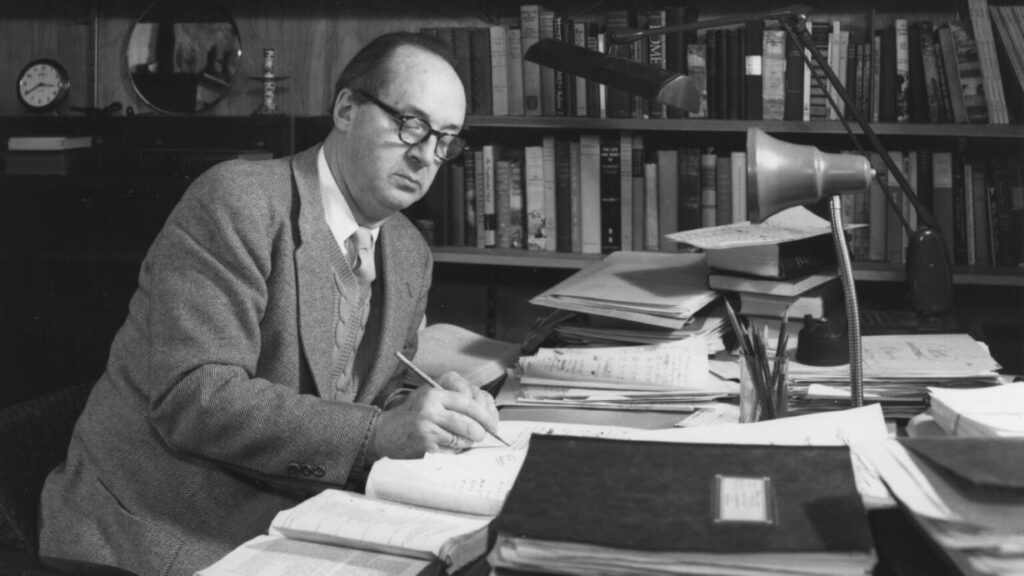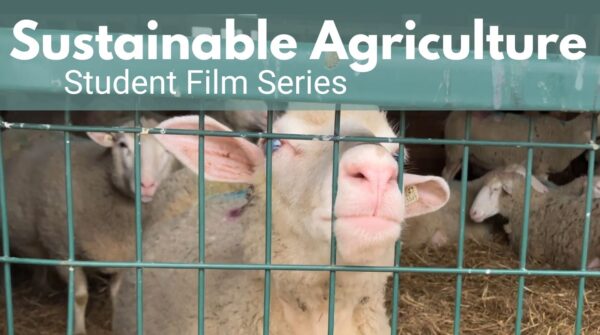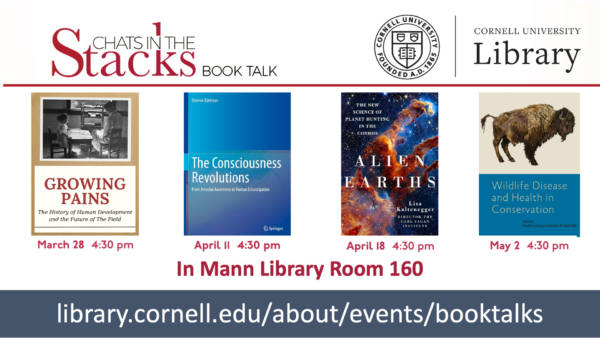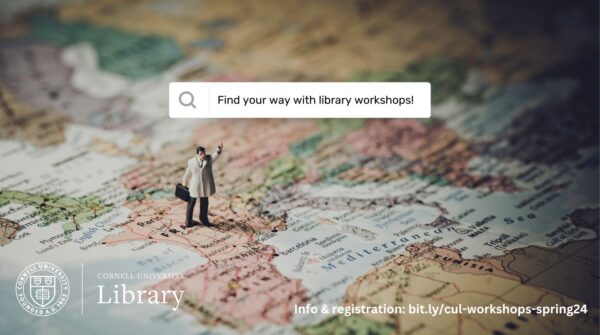Welcome Cornell alums and families! We’re so pleased to have you back on campus and in the library, and we hope that we’ll see many of you at Mann throughout the weekend’s festivities. A quick reminder of our hours this weekend:
- Thursday, 8am to 6pm
- Friday, 8am to 5pm
- Saturday, noon to 5pm
- Sunday, CLOSED
The following events are happening at Mann Library, Friday, June 7:
Open to the public: Introducing Vladimir Nabokov, Lepidopterist
10 – 11am, 2nd floor
Join us for a guided tour of Mann’s new exhibit on Nabokov’s work in butterfly science, with Cornell University Insect Collection & Mann Library (includes special collections viewing & family-friendly arts and crafts activities).
For Class of 1964 only: Fragile Legacy film screening
10am, Room 102 (off the Mann Library Lobby)
Members of the Class of ’64 are invited to join Cornell marine biologist Dr. Leslie Babonis and filmmaker David O. Brown for a film screening of Fragile Legacy, immediately followed by a viewing of Blaschka glass sculpture display on Mann’s 2nd floor.
Open to the public: Butterfly Sticker Workshop
11am – 12pm, CALS Zone (Room 112, off the Mann Library lobby)
Learn to make your own butterfly stickers at this interactive workshop with Andrea Strongwater and the Cornell University Insect Collection (CUIC).
And don’t miss these exhibits & displays throughout Mann Library during reunion weekend:
- From Nabokov’s Net: Nabokov’s Contributions to Butterfly Science & the Cornell University Insect Collection (Mann Gallery, 2nd Floor)
- No Mere Curios: Finding Nabokov’s Lepidopterist Inspiration in the Rare Books of Entomology (Mann Lobby, 1st Floor)
- Bycatch, an exhibit by Charlotte Tysall ’26 (Top Shelf Gallery, 1st Floor)
- Portal: Sound sculptures by James Parker ’26 (3rd Floor stacks)
- The Magic of Mushrooms, artwork by students of Plant Sciences 2010 (2nd Floor)
- Blaschka sea invertebrate models, on long-term loan from the Cornell Dept. of Ecology & Evolutionary Biology (2nd Floor)
Mann is also participating in the campus-wide Library Scavenger Hunt for Young Explorers!
On Your Own Time, Mann Library puzzle area, (1st Floor)
Grab a bookmark and collect animal stickers while exploring different libraries across campus. Discover what each space holds for explorers, whether it’s a children’s reading nook, a coloring station, or a unique spot to relax in. Young adventurers will have a blast! Stations will be open during regular hours for each library, which vary. Please visit https://library.cornell.edu/libraries/ for library hours.
Other participating locations include: Catherwood Library, Clarke Africana Library, Cox Library of Music and Dance, Kroch Library Asia Collections, Mathematics Library, Olin Library, and Uris Library.
